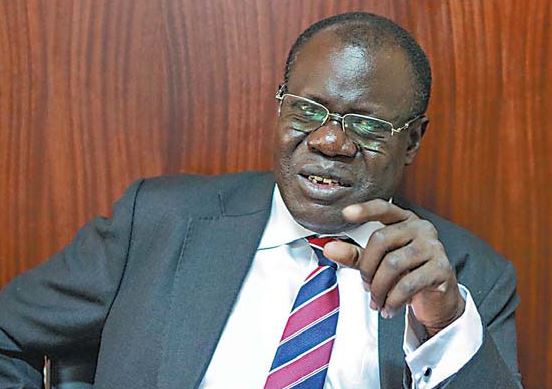
 Kilgoris MP Julius Sunkuli during a past event/FILE
Kilgoris MP Julius Sunkuli during a past event/FILE
Kilgoris MP Julius Sunkuli has thrown his weight behind the Meteorology Bill, lauding it as a crucial step toward establishing a robust and science-based weather authority.
Sunkuli said there is a need to treat meteorology as a rigorous scientific discipline and called for significant investment in equipment, training, and international collaboration.
"I support the Bill because it is high time we had an authority that scientifically monitors our climate and weather," said Sunkuli.
"But let us be clear meteorology is a science, not traditional guesswork. We cannot conflate the study of the atmosphere with reading animal intestines."
The Bill, sponsored by Senate Majority Leader Aaron Cheruiyot and already passed by the Senate with amendments, was read for the second time in the National Assembly last week.
It proposes the establishment of the Kenya Meteorological Service Authority, mandated to regulate, coordinate, monitor, and manage meteorological services across the country.
While the Bill includes clauses criminalising unauthorised weather forecasting, Sunkuli stressed that the authority must also be well-financed and properly equipped to function effectively.
He drew comparisons with countries like China, where weather prediction is precise and heavily resourced, including through technologies such as weather satellites.
"If we equip this authority properly, it will be able to predict weather in specific localities like Kilgoris, not just regional trends. We cannot keep relying on satellite apps from abroad to tell us whether it will rain in our own backyard," he said.
During the review of the Bill, however, the National Assembly’s Committee on Environment, Forestry, and Mining proposed the inclusion of Traditional Indigenous Knowledge (TIK) as a complementary forecasting tool. “We can't rule out traditional methods such as interpreting animal behavior or intestines; they’ve proven accurate in some communities,” argued Tiaty MP William Kamket.
Sunkuli disagreed with over-reliance on such methods, urging Parliament to “embrace science fully” and prioritise training of staff, noting that the existing Kenya Meteorological Department should not just transition personnel but also upskill them.
“We are creating an authority that promises better results; you can’t squeeze water from a stone. The staff must be trained, and the new institution should benchmark with the best globally,” he said.
The Meteorology Bill seeks to align Kenya’s meteorological services with international aviation and environmental standards.
It proposes stiff penalties for unauthorized weather forecasts, including fines of up to Sh5 million or jail terms for those who disseminate unverified meteorological information or tamper with registered weather stations and instruments.
Further, it mandates the new Authority to issue calibration certificates, regulate weather-modification activities, and provide public access to meteorological services.
The Bill also lays out training responsibilities, including the development of meteorological curricula and certification in line with World Meteorological Organization standards.
Sunkuli also gave a rallying call for Parliament to stop romanticising tradition at the expense of science.
"I come from a Maasai clan that can traditionally predict weather, but most of the time, we get it wrong. Let’s stop slaughtering animals to guess the weather and start building satellites," he said.













